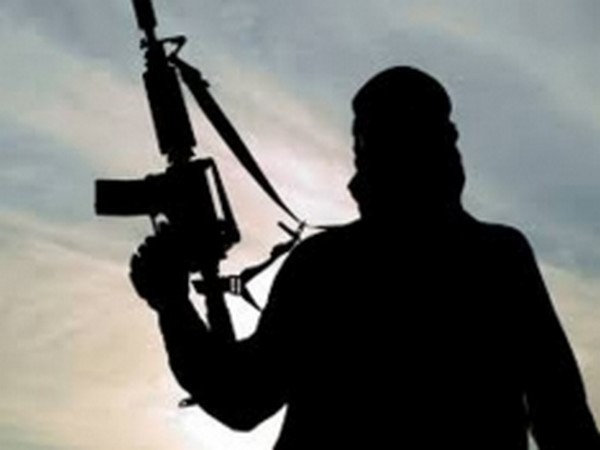Will Taliban check ISIS-K attacks on Shia community?
For decades, violence has torn through Afghanistan's Shiite community, perpetuated first by the Taliban -- who consider Shiites heretics -- and in more recent years by the Islamic State - Khorasan (ISIS-K).

- Country:
- Afghanistan
For decades, violence has torn through Afghanistan's Shiite community, perpetuated first by the Taliban -- who consider Shiites heretics -- and in more recent years by the Islamic State - Khorasan (ISIS-K). Christina Goldbaum and Yaqoob Akbary, writing in The New York Times asked that with two suicide bombings by ISIS-K at mosques in October, which together killed more than 90 people and injured hundreds of others, stoked fears if the Taliban would allow the Islamic State's campaign against Afghan Shiites to go unchecked.
The string of attacks by ISIS-K killed three generations of one Shiite family. Over two weeks, Masooma Rajabi suffered loss after loss as suicide attacks on Shiite mosques in two parts of the country ravaged their family, killing her husband, father-in-law and her 15-year-old son, Maisam. When the Taliban, hard-line Sunni Muslims, seized power in August, they vowed to end decades of bloodshed and sought to reassure Afghan Shiites that they would not again be their targets, as they were during the group's previous rule from 1996 to 2001.
This time around, the Taliban have allowed Shiites to observe the holy holiday of Ashura; they dispatched a Shiite cleric to do outreach in Shiite communities; they visited Shiite mosques to demonstrate solidarity and they vowed that the new government would keep them safe, reported The New York Times. Moreover, the attacks also fuelled concerns in neighbouring Iran, a Shiite Muslim theocracy and self-proclaimed defender of Shiite Muslims around the world, where officials have voiced concerns about the fate of Afghan Shiites under Taliban rule and the threat of a resurgent ISIS-K launching attacks on Iranian soil, said Goldbaum and Akbary.
Now many Afghan Shiites fear the beginning of a new brutal chapter, one in which their security depends on the very movement that once targeted them. "When the Taliban became in power, we were not expecting these things," said Masooma's uncle-in-law, Abdul Raziq Rajabi, 50, the morning after Maisam died. "But I can't say now whether the Taliban will support our people or not."
After the attack, an uneasy quiet enveloped their neighbourhood of mud brick houses stitched together with narrow alleyways and electric wires dangling overhead. It is one of a handful of Shiite districts in Kandahar, the Pashtun heartland of the country. Some Shiites there are Hazara -- an ethnic minority that has been persecuted for centuries -- who migrated to the southern city for work or to flee violence. Others have lived in the south for hundreds of years, said Goldbaum and Akbary.
The attack on Bibi Fatima Mosque was ISIS-K's first in Kandahar, the Taliban's historic stronghold, and it shocked the Shiite community there, reported The New York Times. By the cemetery gate, talk of security consumed a group of men as they passed around a pot of tea. The new, untested government could not confront the resurgent threat from ISIS-K, some said. Others questioned the Taliban's professed intentions to protect Afghan Shiites -- even wondering whether some Talibs might see the recent attacks as an invitation to freely kill Shiites.
"The Taliban are just saying they are trying to keep our security, but why should we believe them?" asked Khalil, 36, staring at the graves. For Shiite community leaders, the implication of the bombing was clear: It was time to take security back into their own hands. Days after the attack, they met with Taliban officials at the mosque and demanded that the new government return seized weapons to the roughly 40 Shiite places of worship in Kandahar, said Goldbaum and Akbary.
The Taliban agreed to return up to three weapons to every Shiite mosque and offered compensation to families of the bombing victims. But weeks later, the Taliban had still not yet returned the weapons, prompting some Shiite leaders to take matters into their own hands. (ANI)
(This story has not been edited by Devdiscourse staff and is auto-generated from a syndicated feed.)
ALSO READ
Under global spotlight for its oppressive policies, Afghanistan ranks 178th on women's economic participation in World Bank report
Amid Taliban's opposition, UN says process underway to 'appoint' special representative for Afghanistan
Panel of journalists calls on Taliban to lift Facebook ban in Afghanistan
Taliban leaders in Afghanistan issue conflicting messages for Eid, revealing underlying tensions, experts say
Heavy rains set off flash floods, killing 33 people in Afghanistan










